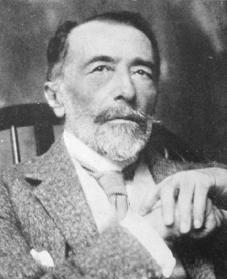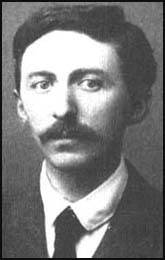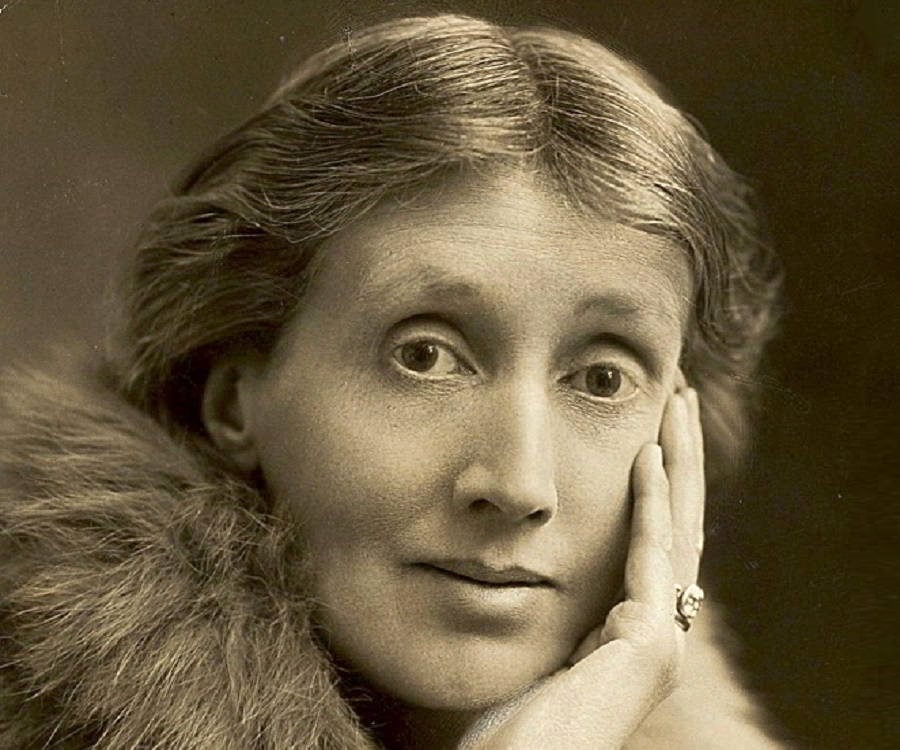CSS Forums
Saturday, April 20, 2024
06:56 AM (GMT +5)
06:56 AM (GMT +5)
|
|||||||
| English Literature Notes and Topics on Eng.Literature here |
 |
Share Thread:
 Facebook
Facebook
 Twitter
Twitter
 Google+
Google+
|
|
|
LinkBack | Thread Tools | Search this Thread |
|
#1
|
||||
|
||||
|
MODERN NOVEL
STREAM OF CONSCIOUSNESS Consciousness: An amalgam of that we have experienced and continue to experience. Every thought is a part of the personal consciousness, unique and ever-changing. We seem to be selective in our thoughts, selectively attentive or inattentive, focussing attention on certain objects and areas of experience, rejecting others, totally blocking others out.
TECHNIQUE OF CHARACTERISATION Previous methods: Two different methods were adopted in the delineation of character. (i) Personalities of characters emerge from a chronological account of events and reactions to it as in Hardy’s The Mayor of Casterbridge. (ii) First a descriptive portrait of the character is given and the resulting actions and reactions elaborate that picture as in Trollope’s Barchester Towers.
|
| The Following 2 Users Say Thank You to Last Island For This Useful Post: | ||
Rehan Mehmood (Wednesday, September 11, 2013), saniam (Wednesday, January 03, 2018) | ||
|
#2
|
||||
|
||||
|
MODERN NOVELIST 1. The Ancestors The immediate ancestors of the modern English novel, who dominated the earlier part of the 20th century, were Wells, Bennet, Conrad, Kipling and Forster.  Herbert George Wells (1866-1946) Most intellectual, looked upon as a teacher, prophet, guide, revolutionary, insisted in discarding the classical humanism in favour of science and biology and replacement of Latin and Greek by World History, no respect for accepted conventions, untouched by sentiments, no loyalty to the past. Three divisions: He wrote
 Arnold Bennett (1867-1931) A literary experimenter drawn chiefly to realism, the slice-of-life approach fiction, naturalistic, copyist of life, he indirectly plays the role of a commentator, an interpreter, an apologist. His Aim: To record life, its delights, indignation and distress. His Novels: An instrument of moral and social reforms, compelled to select relevant and significant things and reject irrelevant and insignificant to determine the nature of his picture of life, delightful style, characters spend their times in the Staffordshire pottery towns. Spectacle of life: Not drab or diseased, sweet, exquisite, blissful, melancholy. Never regrets at the loss of its glamour, find grandeur in the modern life. Background: Social and historical with considerable skill. Three most popular novels: Novels of people in drab surroundings.
 Henry James (1843-1916) Untouched of the pessimism of the age. Characters: No background, move from country to country, emphasis is more on their mental and emotional reactions. Main Contribution: Use of narrative at second hand. His Novels:
 Joseph Conrad (1857-1924) Wrote an exquisite English, lover of fellow creatures, a sailor, developed the plots through a third person making the voice and personality of the narrator extremely suggestive apart from the story. Influenced:
Characters: Strange people beset by obsession of cowardice, egoism or vanity, not refined or fashionable, slave to their own habits, tormented souls, border on tragedy. Merit: Lies in his descriptive power that provides touch of realism, exhibits great ideals of impartiality, practical wisdom, sense of fitness and freedom from sentimentality. Masterpieces:
 Rudyard Kipling (1865-1936) Admired as the strong brave, silent man, slightly wistful admiration of the intellectual, knowledge was superficial, excellent techniques and rich in vocabulary. Derivation of material: From experiences in India as in Plain Tales from the Hills, Under the Deodars and Soldiers Three. Important novels:
 John Galsworthy (1867-1933): Belong to upper class so find it easy to describe the life of inherited wealth, a reformer, true artist, dramatist, man of generous impulses. Function of literature: To reform society. Theme: Balance between opposed ideas or between characters with opposite tenderness, found in his novels collectively called The Forsyte Saga. Earlier novels:
Later novels: First World War changed his attitude, lost sympathy with young, restless, trouble spirits.
 E.M.Forster (1879-1970) Belong to group of elder novelist, moralist, belonged to the tradition of cultural liberalism, admired in early years but later become generally reflective. Aim of the civilized life: To enhance the quality of personal relation not by pomp and power and aggressiveness but by gentle and quiescent qualities. Characters: Ordinary persons of middle-class life, moved by accidents. Characteristics: Conflict between good and evil, between cruel, philistine & unperceiving and the good which is lively, entertaining and sensitive. Humorous development with the combination of body and spirit, reason and emotion, work and play, architecture and scenery, laughter and seriousness. Extraordinary lightness of touch and sensitive spirit, never weak or sentimental, unexpected and sudden death of the characters, distinctions between civilized and barbarism.
__________________
The Me you have always known, the Me that's a stranger still. |
| The Following 6 Users Say Thank You to Last Island For This Useful Post: | ||
|
#3
|
||||
|
||||
|
2. The Transitionalists New experiments were made on account of the new forces resulted from the war which broke the old tradition.  James Joyce (1822-1941) Unique and extraordinary genius, searching for the secret places where real life is hidden, highly gifted, acutely responsive to observed details, symbolic and artistic temperament, born linguist, introduced and worked in the ‘stream of consciousness’ technique. Important novels:
 Virginia Woolf (1882-1941) Most distinguished writer, used ‘stream of consciousness’ technique, impressed by Ulysses, fine sense of language, gifted with poetic temperament, got experiences from books than from actual life. Characteristics: Depicts the stuff of life, thought, feelings, and impressions. Novels:
 Aldous Huxley (1894-1963) Intellectual, lacks the imaginative power and poetic sensitivity Novels: Essays, conversation strung on a thread of a plot, turned fiction into image of the dynamic world of ideas that underlies the changing outward society. In later years he was interested in mysticism and Eastern philosophy. Early novels:
Other:
 D.H.Lawrence (1885-1930) Original writer, passionate Puritan, brought new kind of poetic imagination, sex novelist, and rebel. His novels:
__________________
The Me you have always known, the Me that's a stranger still. |
| The Following 3 Users Say Thank You to Last Island For This Useful Post: | ||
faaizaa (Wednesday, December 05, 2012), madiha alvi (Monday, August 05, 2013), serene syeda! (Wednesday, November 03, 2010) | ||
|
#4
|
||||
|
||||
|
3)The Moderns William Somerset Maugham (1874-1965) Novelist, dramatist, short story writer, naturalistic.Important novels:
John BoyntonPriestley (1894-1984) Revived the sane and vital telling of a story in The Good Companion, having a great defect of being too sentimental. Other novels are:
Charles Langbridge Morgan (1894 – 1958) Philosophical approach. Important novels:
Clive Staples Lewis (1898 – 1963) Chief books: Ethical and philosophical views.
Herbert Ernest Bates (1905 – 1974) Evolved a use of English effective in the development of prose style. Important novels:
Frederick Lawrence Greene (1902–1953) Inevitability of the power of emotions. Theme: Life after death with firm views. Structure: Religious. Important novels:
Graham Greene (1904-1991) Culture is a living force in his novels. Man---essentially good, but flamed by evil. Important novels:
World War II turned already establish writer toward traditional values. Frank Swinnerton (1884 - 1982) Detached and amiable appreciation of people, quite satisfying treatment of life and its significance. Well-known novels:
Richard Thomas Church (1893 – 1972) Concerned with contemporary life. Important novels:
William Golding (1911-1993) Most significant post-war novelist. Important novels:
George Orwell (1903-1950) Satirist. Important novels:
C.P.Snow (1905-1980) Scientist, novelist.
Malcolm Lowry (1909-1957) Old generation writer.
Anthony Dymoke Powell (1905- 2000) Published five novels prior to the war.
Angry Young Men: The literature of the 1950s was as varied as at any time, but much of it was made notable by the appearance of a new breed of writers called the ANGRY YOUNG MEN. This phrase wasoriginally taken from the title of LeslieAllen Paul'sautobiography, Angry Young Man (1951).The word angry is probably inappropriate; dissentient or disgruntled perhaps is more accurate. The group not only expressed discontent with the staid, hypocritical institutions of English society-the so-called Establishment-but betrayed disillusionment with itself and with its own achievements. Most of these were of lower middle-class or working class backgrounds. Although not all personally known to one another they had in common an outspoken irreverence for the British class system and the pretensions of the aristocracy. They strongly disapproved of the elitist universities, the Church of England, and the drabness of working-class life. Writers: English writers of the 1950s whose heroes share certain rebellious and critical attitudes toward society.In the 1960s these writers turned to more individualized themes and were no longer considered a group. John Osborne(1929 – 1994)
John Wain (1925 - 1994)
John Braine (1922 - 1986)
Alan Sillitoe (1928 - 2010)
Kingsley Amis (1922-1995) Best writer of 50s, realist, humanist attempting to put the writer’s talent in the service of society.
Iris Murdoch (1919 - 1999) Foremost novelist of the generation. Her Books:
Angus Wilson (1913-1991) Crisis of the educated British middle-class after World War I was his subject.
Anthony Burgess (1917-1993) Fictional explorer of modern dilemmas combining wit, moral, earnestness and touches of bizarre.
Doris Lessing (1919 - ) Her novels concerned with the people involved in social and political upheavals of 20th century.
Muriel Spark (1918 - 2006) Human Fantasy:
After 1975 there were several intentionally experimental novels such as The White Hotel (1981) by D.M.Thomas (1935) and Midnight Children (1981) by Salman Rushdie (1947). Rushdie’s later novel The Satanic Verses (1988) prompted Iran’s Ayatollah Khomeini to issue a death threat against the author, because the book was considered blasphemous by Muslims. But the more traditional literature persisted in popularity. Anita Brookner (1928) wrote carefully crafted and unpretentious fiction in A Start in Life (1981) and Hotel du Lac (1984). The later generation of satirical writers included Martin Amis (1949), the son of Kingsley Amis. His novels included Money (1984), London Fields (1989) and Time’s Arrow (1991). Julian Barnes (1946) wrote Flaubert’s Parrot (1984) and A History of the World in 101/2 Chapters (1989).
__________________
The Me you have always known, the Me that's a stranger still. |
| The Following 4 Users Say Thank You to Last Island For This Useful Post: | ||
faaizaa (Wednesday, December 05, 2012), madiha alvi (Monday, August 05, 2013), qamar83 (Wednesday, December 05, 2012), Rehan Mehmood (Wednesday, September 11, 2013) | ||
 |
«
Previous Thread
|
Next Thread
»
|
|













